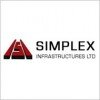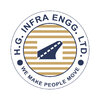Filter interviews by
L&T Construction Interview Questions and Answers
640 Interview questions
Civil engineering faces challenges like budget overruns, scheduling delays, and regulatory compliance in project management.
Budget Overruns: Projects often exceed initial cost estimates due to unforeseen site conditions or material price increases.
Scheduling Delays: Weather conditions or labor shortages can lead to significant delays in project timelines, impacting overall delivery.
Regulatory Compliance: Navigatin...
Civil engineering is a branch of engineering focused on designing, constructing, and maintaining infrastructure and the built environment.
Involves the design of structures like bridges, roads, and buildings.
Civil engineers ensure safety and sustainability in construction projects.
Examples include the construction of dams, highways, and airports.
Civil engineering also encompasses environmental engineering, urban pl...
The density of steel typically ranges from 7.75 to 8.05 g/cm³, depending on its composition and alloying elements.
Density varies with different types of steel; for example, carbon steel has a density around 7.85 g/cm³.
Stainless steel, which contains chromium and nickel, generally has a density of about 7.9 to 8.1 g/cm³.
Alloy steels can have densities that vary based on the specific alloying elements used.
Understan...
M25 is a concrete grade with a characteristic compressive strength of 25 MPa at 28 days, suitable for various structural applications.
M25 concrete has a mix ratio of 1:1:2 (Cement: Sand: Aggregate).
It is commonly used in medium-strength structures like beams and slabs.
M25 is suitable for residential buildings and pavements.
The 'M' stands for 'Mix' and the number indicates the compressive strength in MPa.
I utilize various methods to identify risks, including inspections, audits, and employee feedback to ensure safety at all levels.
Conduct regular site inspections to identify hazards, such as unguarded machinery or slip hazards.
Perform risk assessments using checklists tailored to specific tasks or environments.
Engage employees in safety meetings to gather insights on potential risks they observe.
Utilize incident r...
Civil engineers on site oversee construction, ensuring safety, quality, and compliance with regulations while managing resources effectively.
Project Management: Coordinate daily operations and manage timelines, e.g., scheduling subcontractors.
Quality Control: Inspect materials and workmanship to ensure they meet specifications, e.g., testing concrete strength.
Safety Compliance: Implement safety protocols to protec...
Civil engineers face challenges like project management, budget constraints, and environmental impact assessments.
Project Management: Coordinating multiple teams and timelines can lead to delays; for example, a bridge project may face setbacks due to weather.
Budget Constraints: Staying within budget is crucial; unexpected costs can arise from material price fluctuations or design changes.
Regulatory Compliance: Nav...
I ensure compliance with health and safety regulations through training, regular audits, and fostering a safety-first culture.
Conduct regular training sessions for staff on health and safety protocols, such as proper lifting techniques and emergency procedures.
Implement a routine inspection schedule to identify and rectify potential hazards, like ensuring aisles are clear and equipment is maintained.
Maintain clear...
I prioritize accuracy, efficiency, and proactive strategies to ensure optimal inventory management and minimize losses.
Implement regular inventory audits to identify discrepancies and ensure accuracy.
Utilize inventory management software for real-time tracking and reporting.
Establish reorder points based on sales trends to prevent stockouts.
Train staff on proper inventory handling to reduce damage and loss.
Analyze...
I utilize historical data, market trends, and seasonal patterns to accurately forecast sales and labor needs.
Analyze historical sales data to identify trends and patterns.
Use market research to understand customer preferences and behaviors.
Implement seasonal forecasting to account for fluctuations in demand, such as holidays.
Employ inventory turnover rates to determine optimal staffing levels.
Utilize software tool...
L&T Construction Interview Experiences
830 interviews found
I appeared for an interview in Jun 2025, where I was asked the following questions.
- Q1. What are the main branches of civil engineering? Explain the difference between structural engineering and geotechnical engineering. What is the importance of soil investigation in construction? Describe y...
- Ans.
Overview of civil engineering branches, focusing on structural vs geotechnical engineering and sustainable practices.
Main branches of civil engineering include structural, geotechnical, environmental, transportation, and water resources engineering.
Structural engineering focuses on designing and analyzing structures like buildings and bridges, ensuring they can withstand loads.
Geotechnical engineering deals with soil a...
- Q2. What sare some common challenge faced by civil engineering in project management
- Ans.
Civil engineering faces challenges like budget overruns, scheduling delays, and regulatory compliance in project management.
Budget Overruns: Projects often exceed initial cost estimates due to unforeseen site conditions or material price increases.
Scheduling Delays: Weather conditions or labor shortages can lead to significant delays in project timelines, impacting overall delivery.
Regulatory Compliance: Navigating loc...
- Q3. I ham hard working
- Ans.
I am dedicated and committed to my work, consistently striving for excellence in every task I undertake.
I often put in extra hours to ensure project deadlines are met, such as staying late to finalize plans.
I take initiative in problem-solving, like when I identified a potential issue in a project and proposed a solution that saved time and resources.
I prioritize safety and quality, ensuring that all work complies with...
- Q4. What is civil engineering
- Ans.
Civil engineering is a branch of engineering focused on designing, constructing, and maintaining infrastructure and the built environment.
Involves the design of structures like bridges, roads, and buildings.
Civil engineers ensure safety and sustainability in construction projects.
Examples include the construction of dams, highways, and airports.
Civil engineering also encompasses environmental engineering, urban plannin...
Interview Preparation Tips
I appeared for an interview in May 2025, where I was asked the following questions.
- Q1. What is your job role and responsibilities .plan and manage all phases of construction projects .Develop project budgets,schedules and resource plans . coordinate with architects, engineers, contractors an...
- Q2. What are your expectations regarding compensation and benefits, including total cost to company (CTC)?175000 per month
- Q3. Why your change the present job From now onwards I want to take my responsibilities and to show my skills knowledge and talent
- Q4. Which location of job opportunities
- Q5. Type of project
- Q6. I work on segmental bridges
Interview Preparation Tips
I appeared for an interview in Dec 2024.
(4 Questions)
- Q1. The Electrical technician job description entails participating in independent maintenance related training activities organized by the field operations teams and coordinating shutdowns to ensure that ...
- Q2. Commercial and Industrial Electrical Maintenance is the process of regularly inspecting, testing, cleaning, and repairing electrical systems and components to ensure they are safe and functioning Prope...
- Q3. The technician’s role also includes participating in planning, ensuring effective spare parts management, and supervising continuous project improvement.
- Q4. Electrical technicians perform various functions, depending on the particular operations of the company or organization they work with. However, their role is majorly to ensure effective repairs and mainte...
Interview Preparation Tips
Power suppliers
Electrical troubleshooting
PLC Electrical control panel
I appeared for an interview in Jan 2025, where I was asked the following questions.
- Q1. What did you expect from this?
- Ans.
I expected a challenging role that would enhance my skills in managing Windows NT systems and troubleshooting issues effectively.
I anticipated hands-on experience with Windows NT server configurations.
I expected to learn about user account management and security policies.
I looked forward to troubleshooting network connectivity issues.
I hoped to gain insights into backup and recovery processes.
- Q2. What you learn from this?
- Q3. What you want to do?
- Q4. What you did?
- Q5. How can you perform
- Q6. How many languages you know
(2 Questions)
- Q1. Civil engineering sewage project
- Q2. Civil engineering
(2 Questions)
- Q1. Excavation engineering sewage project
- Q2. Civil engineering 6 year sewage project
(2 Questions)
- Q1. Introduce yourself
- Ans.
I am a Senior Engineer with 10+ years of experience in software development and project management.
10+ years of experience in software development
Strong project management skills
Proficient in multiple programming languages such as Java, Python, and C++
- Q2. Job responsibilities of current organisation
- Ans.
Designing and implementing complex software solutions for various projects.
Leading a team of engineers to develop new features and enhancements.
Collaborating with cross-functional teams to ensure project success.
Troubleshooting and resolving technical issues in a timely manner.
Participating in code reviews and providing constructive feedback.
Staying up-to-date with industry trends and technologies to improve processes.
(2 Questions)
- Q1. Introduce yourself
- Ans.
I am a Senior Engineer with 10+ years of experience in software development, specializing in backend systems and cloud technologies.
10+ years of experience in software development
Specialize in backend systems and cloud technologies
Strong problem-solving skills
Experience with languages such as Java, Python, and SQL
- Q2. Why you want to leave your current organisation
- Ans.
Seeking new challenges and growth opportunities
Desire for career advancement
Limited growth potential in current role
Seeking new challenges and projects
Interested in working with new technologies or industries
Interview Preparation Tips
Good ssjjdd jdhd dhebd dhdjd dhdhe jsjs HD shhd
(5 Questions)
- Q1. Introduce yourself
- Ans.
I am a recent graduate with a degree in Business Administration and a passion for marketing and project management.
Recent graduate with a degree in Business Administration
Passionate about marketing and project management
Strong communication and organizational skills
Experience in internships and extracurricular activities
- Q2. What is material use in road construction
- Ans.
Materials used in road construction include asphalt, concrete, gravel, and crushed stone.
Asphalt is a common material used for road surfaces due to its durability and flexibility.
Concrete is often used for highways and major roads because of its strength and longevity.
Gravel is used for rural roads and driveways as a cost-effective option.
Crushed stone is used as a base layer for roads to provide stability and drainage...
- Q3. What is strength requiredfor constructionof bridge
- Ans.
Strength required for construction of a bridge includes structural stability, load-bearing capacity, and durability.
Structural stability to withstand various forces such as wind, traffic, and seismic activity
Load-bearing capacity to support the weight of vehicles, pedestrians, and other loads
Durability to resist corrosion, weathering, and wear over time
Materials like steel, concrete, and composite materials are commonl...
- Q4. What is general instructionsof building construction
- Ans.
General instructions for building construction involve following safety regulations, using proper materials, and ensuring structural integrity.
Ensure compliance with building codes and regulations
Use quality materials to ensure durability and longevity
Follow proper construction techniques to ensure structural integrity
Ensure proper foundation and support for the building
Consider environmental factors and sustainability...
- Q5. What is height tallest
- Ans.
The tallest height is the highest point above a given level or surface.
Height is a measurement of how tall something is
The tallest height on Earth is the summit of Mount Everest at 29,032 feet
Height can also refer to the highest point reached by something like a rocket or airplane
Interview Preparation Tips
I appeared for an interview in Feb 2025.
(3 Questions)
- Q1. Electrical work
- Q2. Bar bending machine
- Q3. Electrical Panel
(2 Questions)
- Q1. Bar bending machine
- Q2. DG
Reasoning and English
(2 Questions)
- Q1. Which is your favourite subject and why?
- Ans.
My favorite subject is Mechanical Engineering because I enjoy learning about how machines work and designing new technologies.
I have always been fascinated by the principles of mechanics and thermodynamics
I enjoy working on projects that involve designing and building machines
I find the process of problem-solving in mechanical engineering to be challenging and rewarding
- Q2. Trade subject related questions....
Interview Preparation Tips
I appeared for an interview in Jan 2025.
(3 Questions)
- Q1. What does traversing mean in the context of data structures or algorithms?
- Ans.
Traversing in data structures or algorithms refers to visiting and processing each element in a data structure in a specific order.
Traversing a binary tree involves visiting each node in a specific order such as in-order, pre-order, or post-order traversal.
In array traversal, each element of the array is accessed and processed sequentially.
Graph traversal algorithms like Depth First Search (DFS) and Breadth First Searc...
- Q2. What is level shifting?
- Ans.
Level shifting is the process of changing the voltage level of a signal from one level to another.
Level shifting is commonly used in electronics to ensure compatibility between different components or systems.
It can involve using voltage level shifters or simple resistor networks.
For example, shifting a 3.3V signal to a 5V signal for proper communication between devices.
- Q3. What is list count of ts
- Ans.
The list count of ts refers to the number of occurrences of the letter 't' followed by the letter 's' in a given list.
Count the number of times 'ts' appears in the list
Ignore cases where 't' and 's' are not directly next to each other
Example: ['cats', 'dogs', 'tsunami'] would have a list count of 1
Interview Preparation Tips
Top trending discussions






L&T Construction Interview FAQs
The duration of L&T Construction interview process can vary, but typically it takes about less than 2 weeks to complete.
Tell us how to improve this page.
L&T Construction Interviews By Designations
- L&T Construction Graduate Engineer Trainee (Get) Interview Questions
- L&T Construction Civil Site Engineer Interview Questions
- L&T Construction Senior Engineer Interview Questions
- L&T Construction Civil Engineer Interview Questions
- L&T Construction Site Engineer Interview Questions
- L&T Construction Assistant Manager Interview Questions
- L&T Construction Safety Officer Interview Questions
- L&T Construction Electrical GET Interview Questions
- Show more
Interview Questions for Popular Designations
- Graduate Engineer Trainee (Get) Interview Questions
- Civil Site Engineer Interview Questions
- Civil Engineer Interview Questions
- Senior Engineer Interview Questions
- Site Engineer Interview Questions
- Assistant Manager Interview Questions
- Safety Officer Interview Questions
- Electrical GET Interview Questions
- Show more
Overall Interview Experience Rating
based on 963 interview experiences
Difficulty level
Duration
Interview Questions from Similar Companies
L&T Construction Reviews and Ratings
based on 6.6k reviews
Rating in categories
|
Assistant Manager
1.1k
salaries
| ₹8.8 L/yr - ₹16 L/yr |
|
Senior Engineer
731
salaries
| ₹5 L/yr - ₹11 L/yr |
|
Assistant Construction Manager
515
salaries
| ₹9 L/yr - ₹16 L/yr |
|
Site Engineer
394
salaries
| ₹2.4 L/yr - ₹7.1 L/yr |
|
Civil Site Engineer
379
salaries
| ₹3 L/yr - ₹7.6 L/yr |

Larsen & Toubro Limited

Dilip Buildcon

Simplex Infrastructures

Power Mech Projects
- Home >
- Interviews >
- L&T Construction Interview Questions













